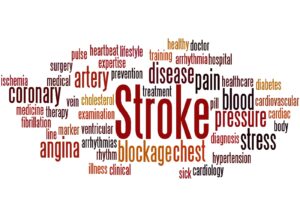What Can You Do to Help a Senior Recovering from a Stroke?

Elder Care in Danville CA
A stroke happens when blood flow in the brain suddenly stops, either briefly or even for minutes at a time. Damage to the brain from a stroke can range from mild to incredibly severe, resulting in difficulty controlling body movement, speech difficulties, and other problems. Here’s what you need to know as your senior recovers from a stroke, and how elder care can help.
Understand What to Expect in Her Recovery
Every person who has experienced a stroke recovers at a much different rate. That’s because every stroke and every person are so very different. Talk with your aging family member’s doctors and determine what her recovery is expected to look like. That can help both you and your senior know what to expect and when to be more concerned.
Compensate for Difficulties with ADLs
ADLs, or activities of daily living, are likely to be much more complicated than ever before for your senior. The simplest activities, like brushing her teeth or getting dressed, may take a lot more time and energy now, if they’re possible for her to do at all. Having help from elder care providers can make life so much easier and safer for your senior as she recovers.
Find Ways to Help Your Senior to Rest
Home care can also give your senior an opportunity to rest while she recovers. Having the ability to rest as much as she can is crucial, as it allows both her body and her brain to have the time that they need. When she doesn’t need to worry about how meals will get made or the house will stay tidy, it’s a lot easier for your senior to allow herself to take time to heal.
Encourage Movement
Some movement is imperative for getting back to life as usual, though. Your elderly family member may work with a physical or occupational therapist to learn new ways to move her body as she recovers from a stroke. Spending some time each day with regular movement can help to speed up her recovery.
Keep Track of Your Senior’s Recovery
No matter how quickly you know your senior is recovering, though, she may feel as if she’s not making any progress at all. Keeping a log or journal of how your senior is feeling each day can give her something to look back on and see the progress she’s made. Elder care providers can help her to keep the information updated, too, so that she’s got information that can ease her mind.
Follow Through on Appointments
One thing that your senior doesn’t want to do is miss any follow-up appointments with doctors or therapists. These are crucial so that she can get updated information on how her condition is progressing. Elder care providers can help with transportation and reminding your senior when she has appointments coming up.
Stroke recovery can be a difficult road, but with the help that she needs, your senior is much more likely to be safe and feel comfortable while she’s recovering at home. Adjusting the help that she gets helps to meet her needs continually as her health changes.
If you or an aging loved one is considering elder care in Danville, CA, please contact the caring staff at Provident Care Home Care today at (209) 578-1210.
- Creating a Plan for Aging in Place - July 26, 2024
- What Can Families Do to Help Seniors Avoid Boredom and Depression? - July 19, 2024
- Helping Seniors With Alzheimer’s or Dementia Sleep Better - July 12, 2024
